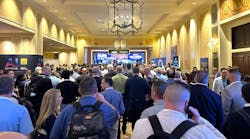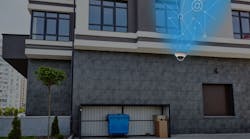CHICAGO -- Surveillance cameras -- aimed at government buildings, train platforms and intersections here -- might soon be required at corner taverns and swanky nightclubs.
Mayor Richard Daley wants to require bars open until 4 a.m. to install security cameras that can identify people entering and leaving the building. Other businesses open longer than 12 hours a day, including convenience stores, eventually would have to do the same.
Daley's proposed city ordinance adds a dimension to security measures installed after the Sept. 11 attacks.
The proliferation of security cameras -- especially if the government requires them in private businesses -- troubles some civil liberties advocates.
"There is no reason to mandate all of those cameras unless you one day see them being linked up to the city's 911 system," says Ed Yohnka of the Illinois American Civil Liberties Union. "We have perhaps reached that moment of critical mass when people ... want to have a dialogue about how much of this is appropriate."
Milwaukee is considering requiring cameras at stores that have called police three or more times in a year. The Baltimore County Council in Maryland ordered large malls to put cameras in parking areas after a murder in one garage last year. The measure passed despite objections from business groups.
"We require shopping centers to put railings on stairs and install sprinkler systems for public safety. This is a proper next step," says Baltimore County Councilman Kevin Kamenetz, who sponsored the ordinance.
Some cities aren't going along. Schenectady, N.Y., shelved a proposal that would have required cameras in convenience stores.
"The safer we make the city, the better it is for everyone," says Chicago Alderman Ray Suarez, who first proposed mandatory cameras in some businesses. "If you're not doing anything wrong, what do you have to worry about?"
Nick Novich, owner of three Chicago bars, worries about the cost. "Every added expense ... puts a small business in greater jeopardy of going out of business," he says. Daley says cameras will deter crime, but Novich says, "That's what we're paying taxes for."
Colleen McShane, president of the Illinois Restaurant Association, says the proposal, which Daley announced last week, is an unfair burden on small businesses. "This is once again more government intrusion," she says.
Some business owners say cameras make patrons feel safer. Cameras are in all 30 Chicago bars, clubs and restaurants owned by Ala Carte Entertainment, spokeswoman Julia Shell says: "It's far more cost-effective for us to have them than not to have them."
By spring, 30 Chicago intersections will have cameras to catch drivers who run red lights. More than 2,000 cameras around the city are linked to an emergency command center, paid for in part by federal homeland security funds.
The newest "smart" cameras alert police when there's gunfire or when someone leaves a package or lingers outside public buildings. The system is based on the one in London that helped capture suspected terrorists after last summer's subway bombings.
Chicago is installing those sophisticated camera systems more aggressively than any other U.S. city, says Rajiv Shah, an assistant professor at the University of Illinois-Chicago who studies the policy implications of surveillance technology. Recording what people do in public "is just getting easier and cheaper to do," he says. "Think of your camera cellphone."


